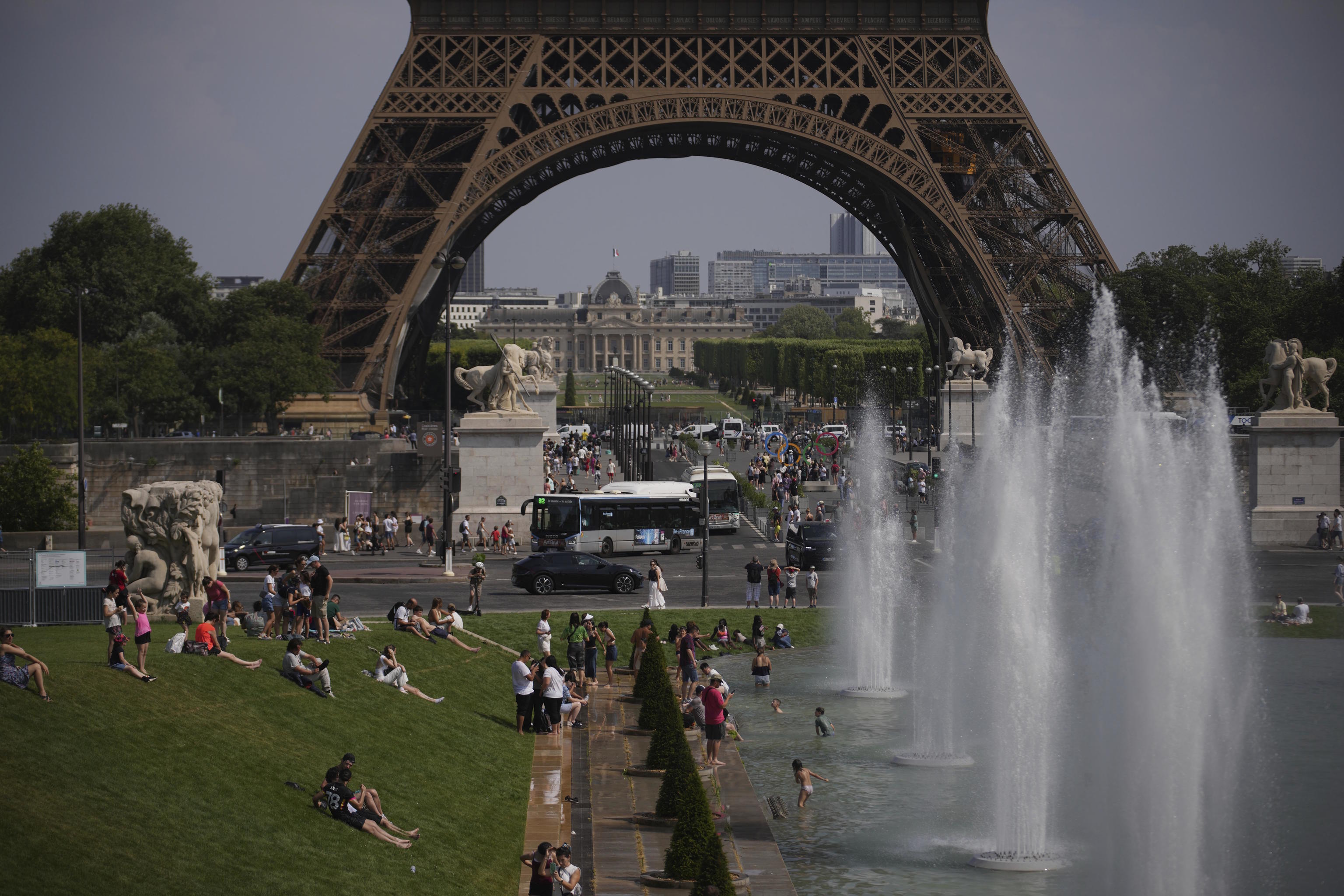Heatwaves in Southern Europe are becoming increasingly early and intense, affecting larger geographical areas. France, with 90% of its territory under red or orange alert, and temperatures 10 degrees above average at the end of June, has been the most affected country along with Spain and Portugal, where 46.6 degrees were recorded in Mora, about 100 kilometers east of Lisbon.
Italy and Greece have also felt the impact of the heat, with temperatures nearing 40 degrees, and in the UK (which surpassed the threshold three years ago), it confirmed the hottest start to the Wimbledon tournament with 33 degrees.
"Europe has experienced very high temperatures since the beginning of June, more typical of July and August, which used to occur only occasionally throughout the summer," confirms Samantha Burgess from the European Centre for Medium-Range Weather Forecasts (ECMWF).
The scientist warns that this pattern of early summer (with two heatwaves recorded on the 20th and 27th of June) already occurred in 2024, "the hottest year on record to date." And in her opinion, the cause is clear: "Climate change is making heatwaves more frequent and intense."
A similar opinion is shared by Météo-France climatologist Christine Berne: "Heatwaves are no longer an exception. They are now more frequent, longer, and spread over larger geographical areas." This week in France, a total of 16 departments declared a red alert (including Paris), and 68 were on orange alert. Only the English Channel region escaped the extreme temperatures.
"This phenomenon is directly related to global warming, which is profoundly altering weather patterns, both in France and elsewhere," warns Berne, recalling how her country had not previously issued a red alert (potential life-threatening risk) so early in the summer season.
"The anticyclone (situated over Southern Europe) has acted as a fictitious lid under which heat accumulates day after day," warns the meteorologist, trying to explain the suffocating sensation that has affected much of France these days, bringing back memories of the deadly heatwave that claimed 14,800 lives in August 2003. Despite the increasing intensity (31 days under heatwave conditions were recorded in 2022), the country is not prepared for high temperatures, with one in four households lacking air conditioning.
The death of a 10-year-old American girl while visiting the Palace of Versailles with her family, apparently due to heatstroke, was the first recognized victim of the heatwave. During the red alert in Paris, the Eiffel Tower closed its top floor, and the city activated level 4 precaution against extreme heat. Over 1,800 schools closed in the country, and the Golfech nuclear reactor had to shut down because the Garonne River water was too warm to cool it. Train communications with Italy (including the Paris-Milan high-speed train) were also temporarily suspended due to severe storms earlier in the week.
Only 25% of households in France have air conditioning, a figure criticized in Parliament by National Rally leader Marine Le Pen. "Air conditioning saves lives, and many public services could not operate this week due to the lack of this basic element, as in dozens of countries around the world," Le Pen stated. Environment Minister Agnès Pannier Runacher countered, arguing that air conditioning "is the wrong answer because it cannot be installed everywhere and causes an increase in outdoor temperature" (although she noted that it has been mandatory for nursing homes for 20 years).
In Italy, the government imposed severe restrictions on outdoor work following the death of a construction worker, Brahim Ait El Haijam, who died at 47 after fainting in a building in Bologna. In Palermo, a 53-year-old woman with a heart condition died on the street. Emergency room admissions in hospitals increased from 15 to 20%, mostly due to dehydration. In Turin, a 70-year-old man died during floods at a tourist resort, and the town of Cogne in the Aosta Valley was partially covered by a landslide.
In Turkey, over 50,000 people were evacuated during the fires ravaging Izmir province, intensified by strong winds and high temperatures. In Greece, which experienced one of the most devastating fire seasons in 2024, a state of emergency was declared on the island of Chios, and the fire temporarily forced the closure of the road between Athens and the Temple of Poseidon, one of the country's main tourist attractions.
The heatwave also hit the UK. The hottest day ever recorded in June was reached in Frittenden, Kent, where temperatures reached 33.6 degrees. England closed its hottest June on record, following the driest spring, raising concerns about the wildfire season.
Europe is warming at a rate twice the global average, and the new reality seems to be what we are experiencing in 2025. It is estimated that heat-related deaths on the continent will reach 44,000 this year. A Lancet Public Health study predicts that the number of fatalities would triple in a scenario of a three-degree temperature increase from pre-industrial levels, with a particular impact on Mediterranean countries like Spain, Greece, and Italy.
